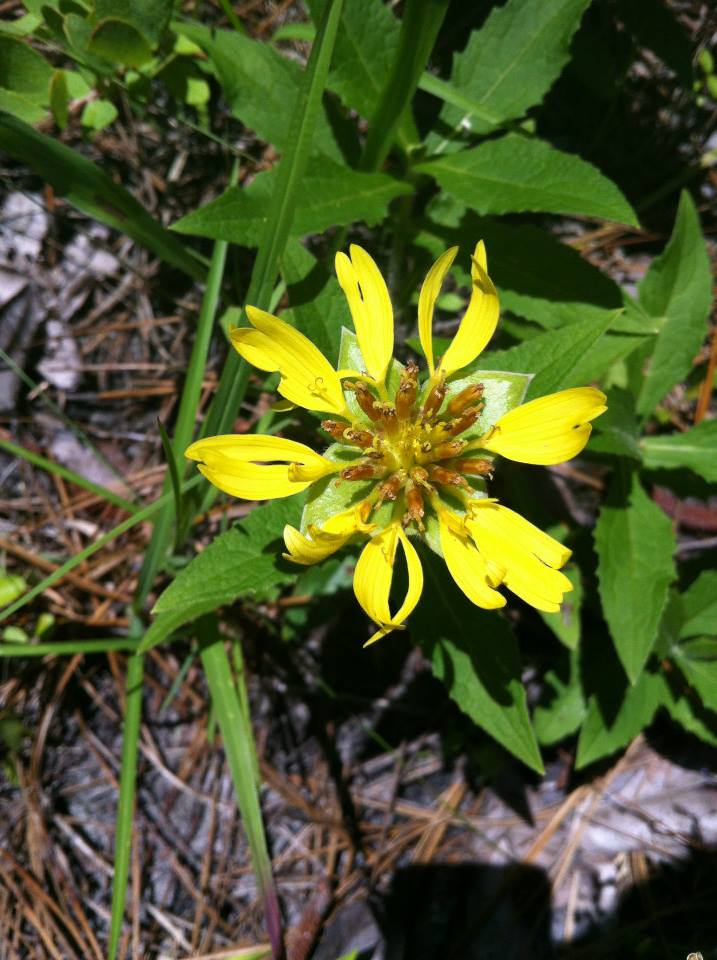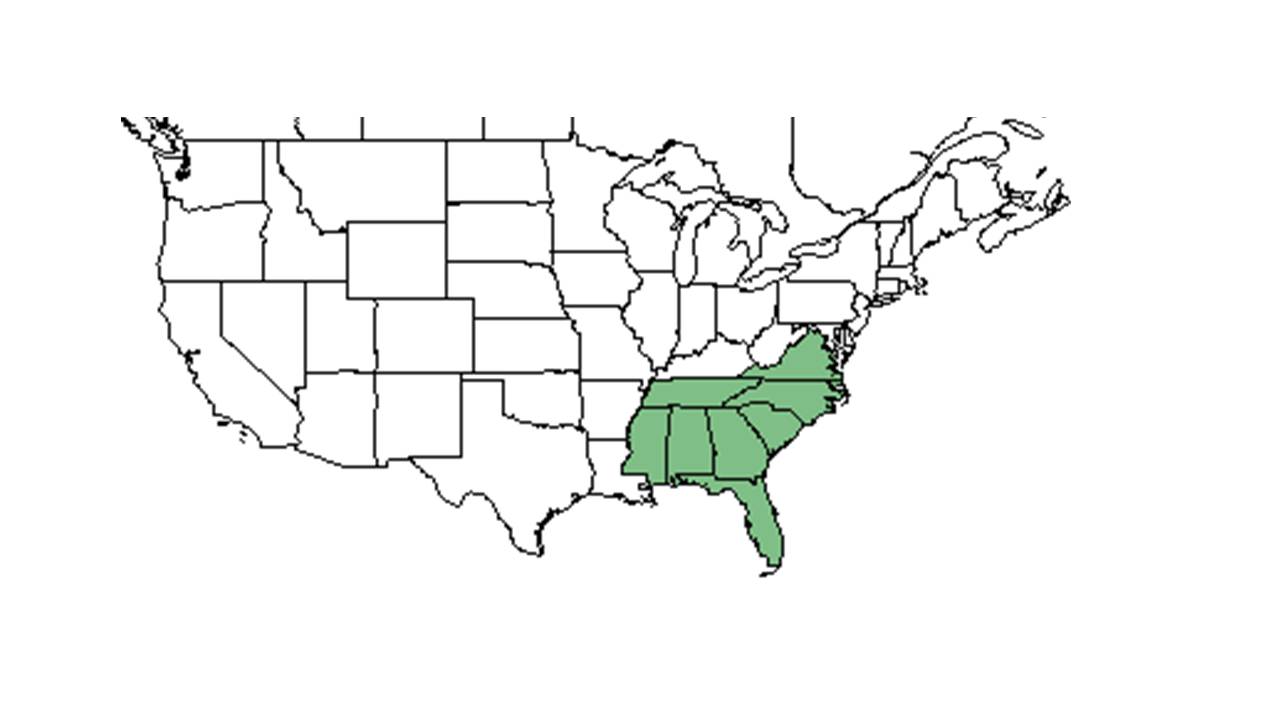Difference between revisions of "Tetragonotheca helianthoides"
(→Description) |
KatieMccoy (talk | contribs) |
||
| Line 19: | Line 19: | ||
Common name: pineland nerveray | Common name: pineland nerveray | ||
| + | ==Taxonomic notes== | ||
==Description== | ==Description== | ||
<!-- Basic life history facts such as annual/perrenial, monoecious/dioecious, root morphology, seed type, etc. --> | <!-- Basic life history facts such as annual/perrenial, monoecious/dioecious, root morphology, seed type, etc. --> | ||
Revision as of 17:58, 14 October 2015
| Tetragonotheca helianthoides | |
|---|---|

| |
| Photo taken by Michelle M. Smith | |
| Scientific classification | |
| Kingdom: | Plantae |
| Division: | Magnoliophyta – Flowering plants |
| Class: | Magnoliopsida – Dicotyledons |
| Order: | Asterales |
| Family: | Asteraceae ⁄ Compositae |
| Genus: | Tetragonotheca |
| Species: | T. helianthoides |
| Binomial name | |
| Tetragonotheca helianthoides L. | |

| |
| Natural range of Tetragonotheca helianthoides from USDA NRCS Plants Database. | |
Common name: pineland nerveray
Contents
Taxonomic notes
Description
A description of Tetragonotheca helianthoides is provided in The Flora of North America.
Distribution
Ecology
Habitat
It is found in longleaf pine sandhill communities (Heuberger et al 2003).
Phenology
Seed dispersal
Seed bank and germination
Fire ecology
Arata noted that T. helianthoides appeared in late May/ early June after burning in mid-winter (1959).
Pollination
Use by animals
Diseases and parasites
Conservation and Management
Cultivation and restoration
Photo Gallery
References and notes
- Arata, A. A. 1959. Effects of burning on vegetation and rodent populations in a longleaf pine-turkey oak association in north central Florida. Quarterly Journal of the Florida Academy of Sciences 22:94-104.
- Heuberger, K. A. and F. E. Putz. 2003. Fire in the suburbs: ecological impacts of prescribed fire in small remnants of longleaf pine (Pinus palustris) sandhill. Restoration Ecology 11:72-81.